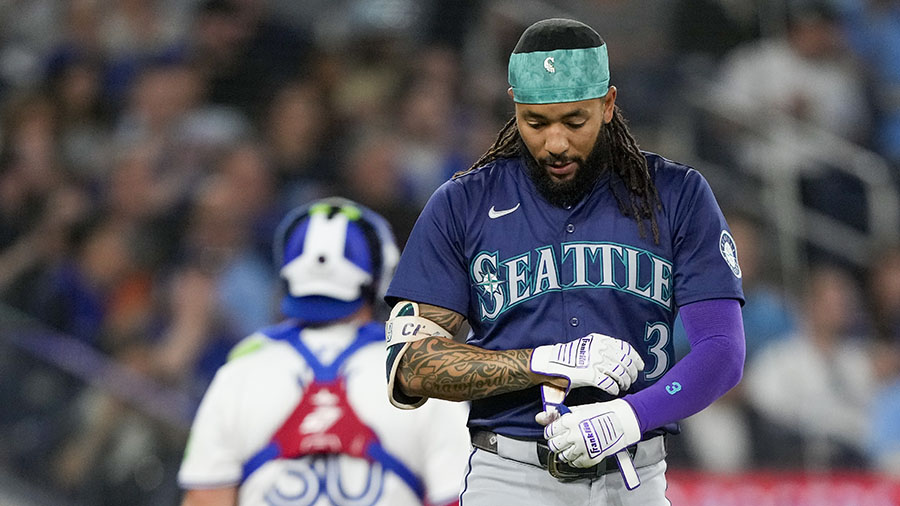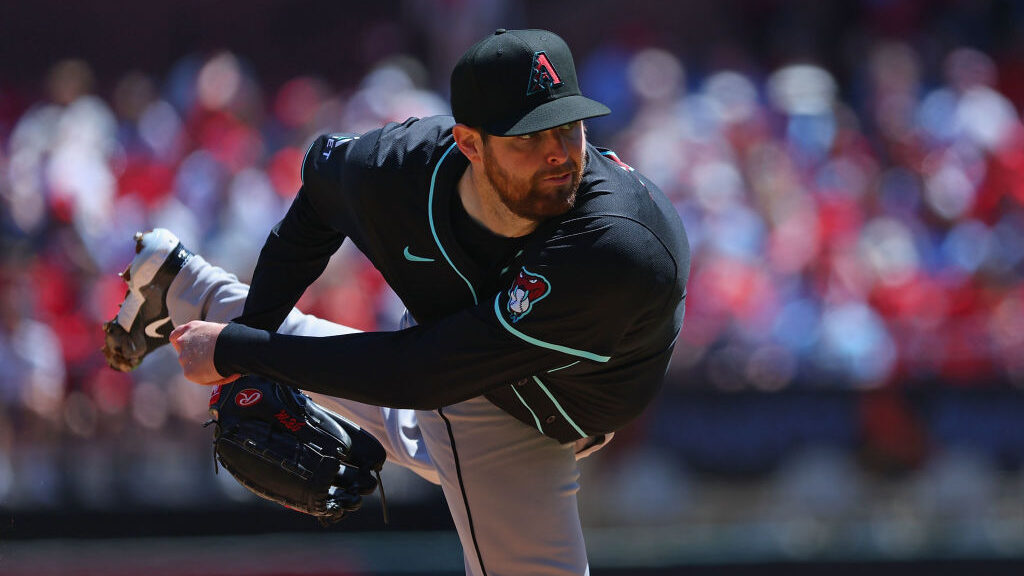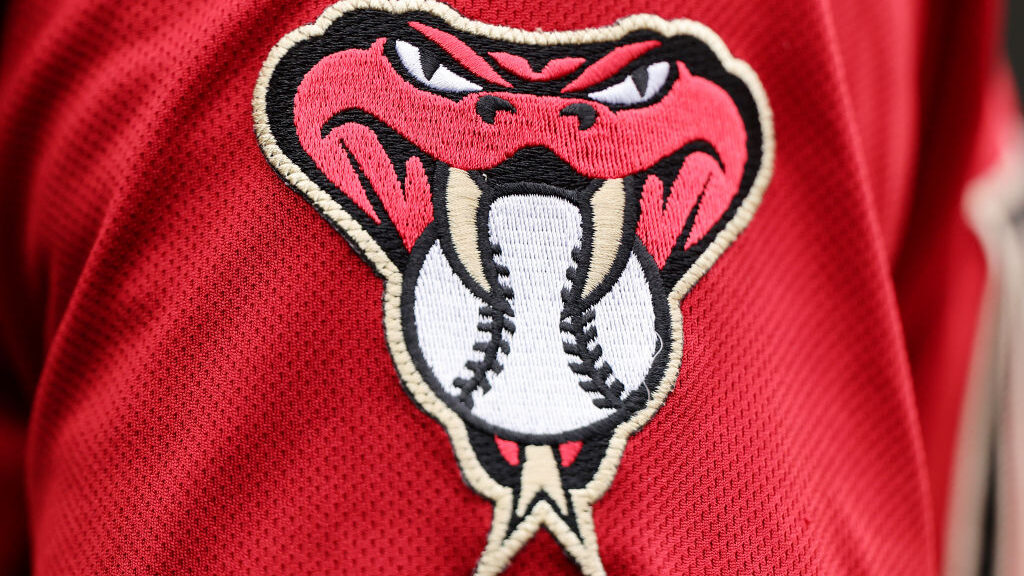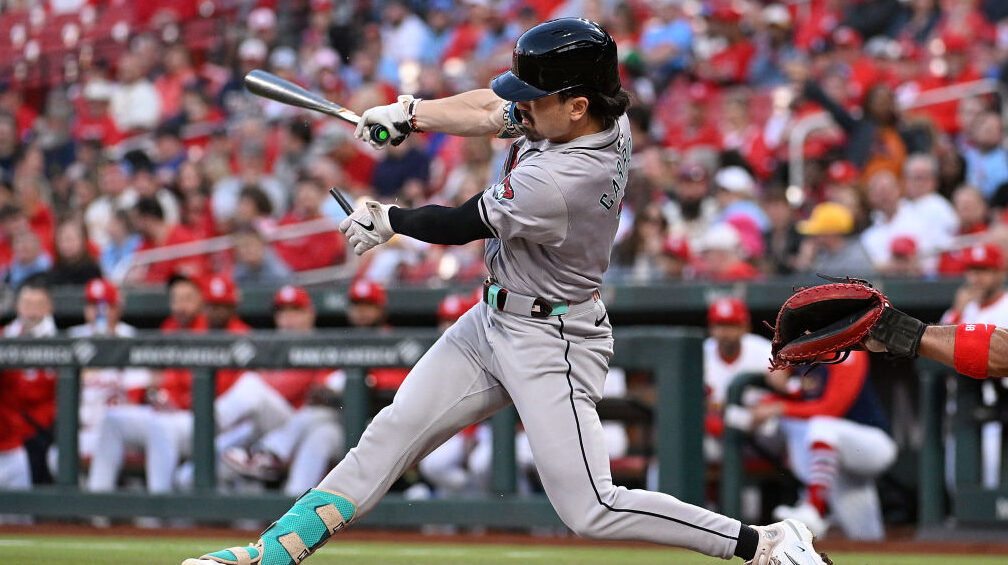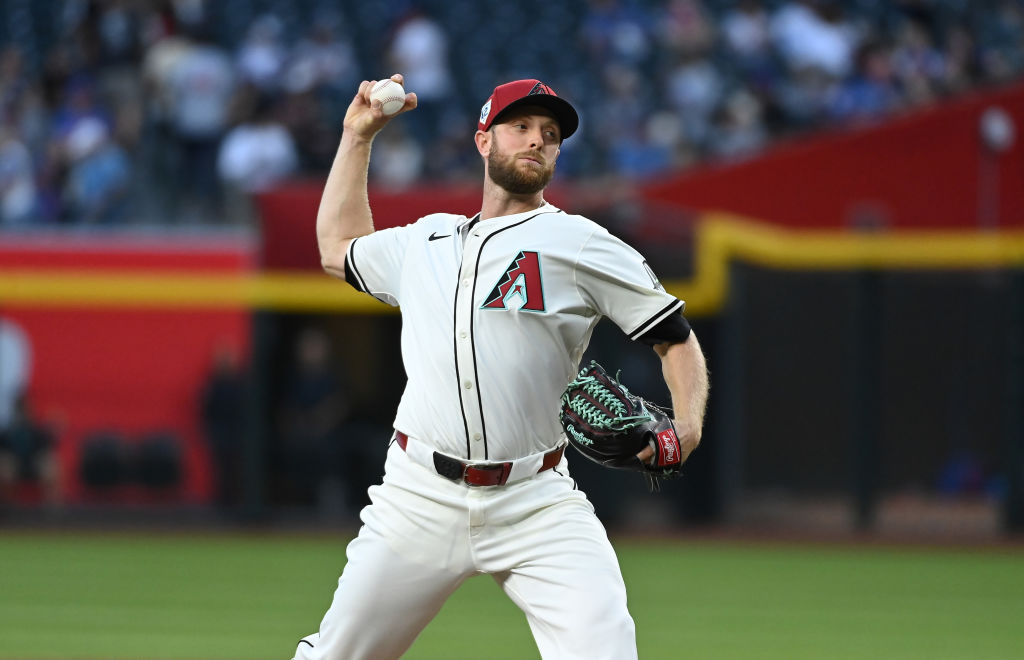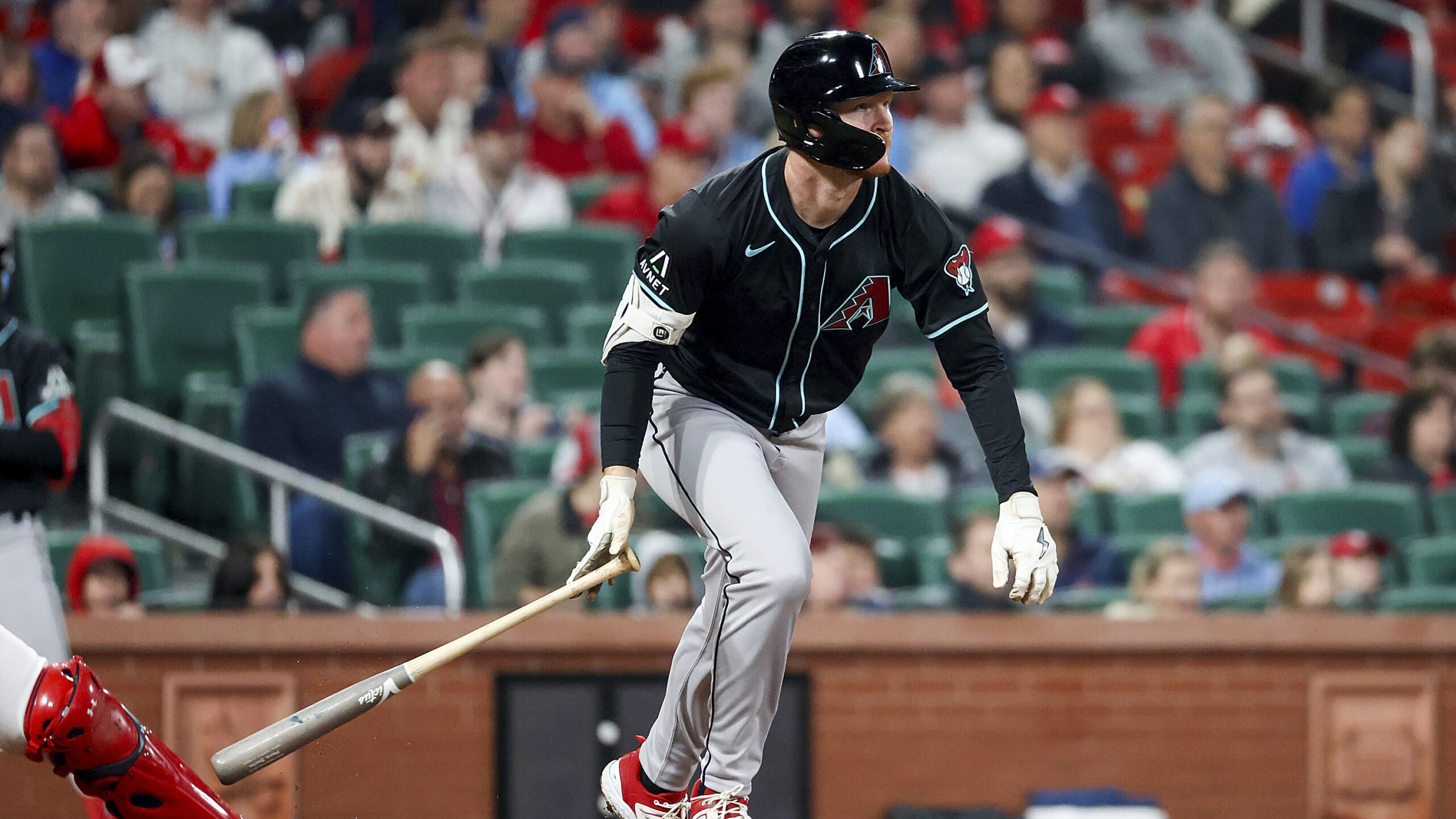Archie Bradley pleased with how D-backs handled arbitration process
Feb 20, 2020, 10:01 AM | Updated: 11:13 am
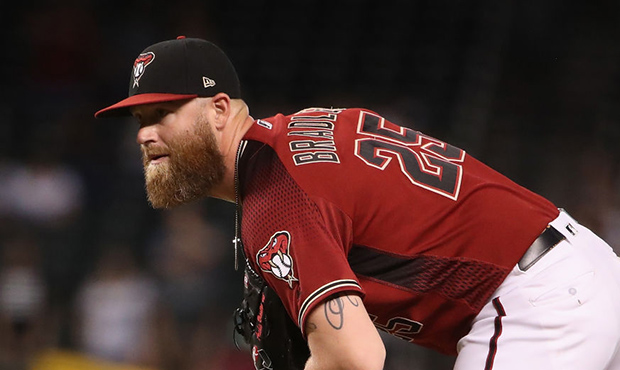
(Photo by Christian Petersen/Getty Images)
(Photo by Christian Petersen/Getty Images)
On Aug. 14 of last season, the Arizona Diamondbacks were in Colorado playing the Rockies. Pitcher Archie Bradley had a save in four of his previous five appearances, and he came in to pitch the ninth as the D-backs led 6-5.
Bradley gave up a two-run, walk-off home run to Nolan Arenado, earning both the loss and the blown save.
“It was the first technical save I blew as the closer,” Bradley told Doug & Wolf on 98.7 FM Arizona’s Sports Station Thursday. “And it was the first time I just walked in and hanged my hat up and got showered and got dressed. And it was like, ‘This is the role I’m in now. I have to be able to wear this on the chin, act like it didn’t bother me and roll in the next day.’ And I got a save the very next game. And that happens all the time in the pen, you pitch bad, you go out the next day.
“There’s never like a, ‘Oh, a Sunday day game, I’m kind of tired, I’m going to stroll out there and just–‘ Nah, man. There’s no in between in the ninth. You either win the game or you lose the game. And … that’s a lot of my growth this year is understanding that.”
What role Bradley pitches in 2020 will be determined. First, they have to settle on a contract, a process that began Tuesday when Bradley and the team had their arbitration hearing together.
“As much as you want to be personal and friendly with guys, there is a business aspect to what’s going on,” Bradley said. “And I think if you don’t understand that from the get-go, you’re kind of naive and you weren’t informed correctly. But I do have to give a shoutout to the front office of the Arizona Diamondbacks. [GM] Mike Hazen, [assistant GMs] Jared Porter, Amiel [Sawdaye]. I know it sucks to go in there and have to go through that, but … I talked to other players even this year that went through it, and their GMs, they weren’t in the room with them.
“Those three guys sat in there, they looked me in the eyes, they shook my hand,” Bradley said. “And as difficult of a process as it was, I think that’s where you have to mature and understand this is a business. There’s business decisions that have to be made, and it’s as simple as, ‘I’m going to fight for what I think my value is.’ And they have a value that they can’t pay over that.”
According to MLB.com’s Steve Gilbert, the D-backs were looking to pay $3.625 million, while Bradley was seeking $4.1 million. Results of the arbitration process between Bradley and the team are expected Saturday.
The pitcher emphasized that even though he’s heard stories about the often-unpleasant arbitration process, Arizona treated him respectfully.
“Like I said, man, the way they handled it, to the way they communicate with me to even the next day — I don’t know if I’m supposed to talk about this, it’s not about my case, but just about Mike Hazen and how much respect I have for him, he called me in and straight up, he goes, ‘Hey bro, that sucked. Like having to sit there and listen to us talk bad about you, you don’t get to say anything, the floor is yours. You want to cuss me out? Whatever you want to say, bro, right here, you can look me in the face and tell me.’
“I’ve heard horror stories in the past, that was about cool and respectable as that process could’ve gone.”
As for what he’ll do when they get the contract settled, Bradley might close, but he wasn’t formally the closer for all of last season. He finished the year with 18 saves but also pitched in high-leverage situations elsewhere in the game. Baseball teams have increasingly gone to a model of having their most elite reliever pitch in the most high-leverage situation, not necessarily just the ninth inning.
“That’s one thing I’m trying to do here and I’m trying to be different, I’m trying to set a precedent for players to come: You don’t need a role to define you,” Bradley said. “You don’t need saves to back up your credibility or talent level on the field. I don’t care if I pitch in the third inning, I don’t care if I pitch in the ninth inning. I want to pitch to win.
“When I say that, not every team you can do that on. But I look at the pieces we have, the pieces we have had over the past couple years, and I’m able to slide in these roles. And I think that brings a value to pitching that only a few guys can bring to certain teams. I don’t need to pitch the ninth inning. Pitch me in the seventh and eighth. But I want to get paid accordingly. This isn’t a, ‘Talk about me getting paid,’ but that’s where I’m OK with it. I want to get paid a premium dollar because I don’t care about a title. I don’t care about saves. I want to pitch to win. I want to pitch in high-leverage situations and pitch to win.”

